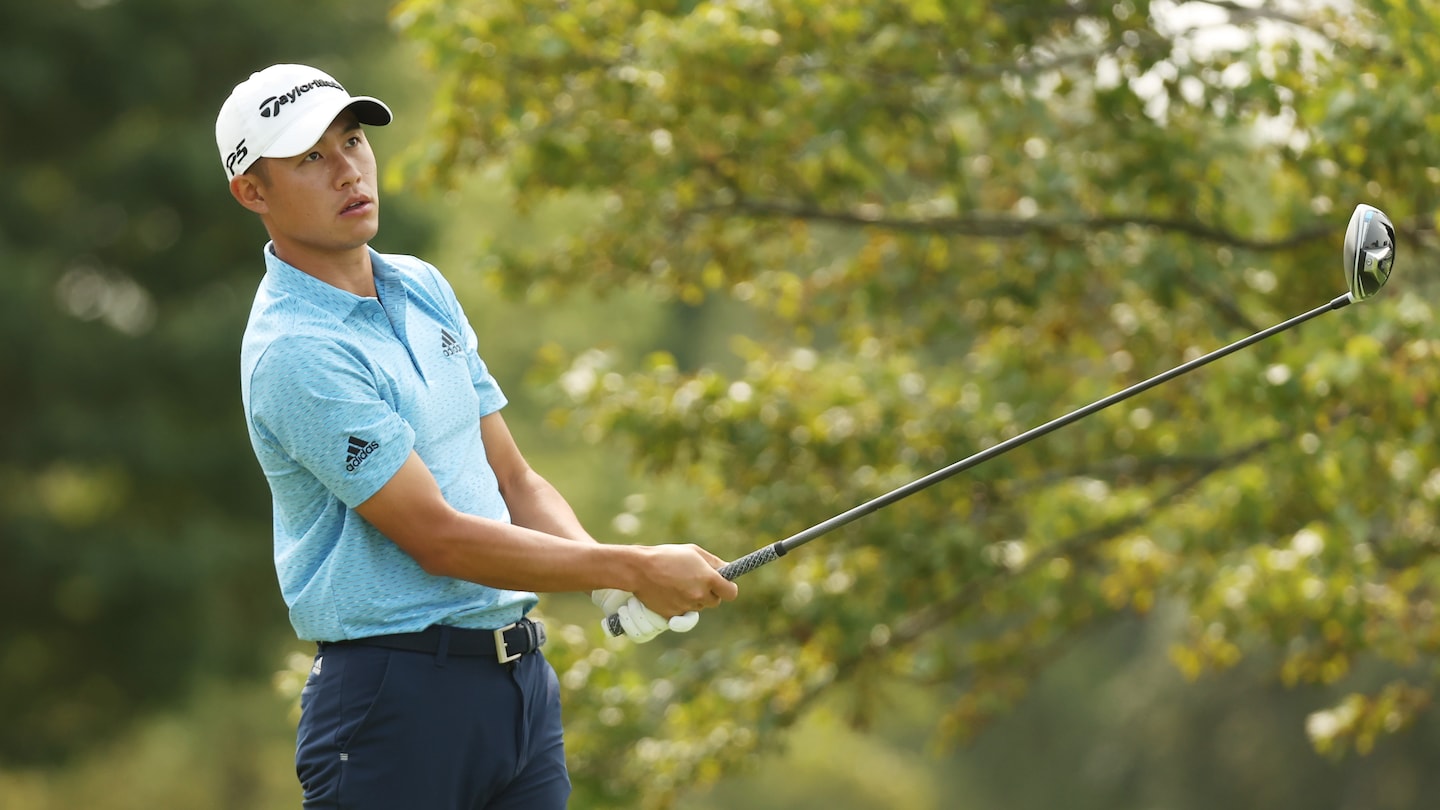What makes Collin Morikawa a success? Just ask his business school lecturer.

Had anyone guessed then who might succeed Koepka as PGA champion come 2020, they reasonably might have scanned that PGA leader board from Koepka himself all the way down to the cut victims. But for keen soothsaying, they should have looked indoors at Berkeley, amid the caps and gowns and episodic rowdiness, among the graduates headed to firms such as Barclays and Accenture, where a student speaker quoted Jay-Z: “I’m not a businessman; I’m a business, man.”
Well, if that isn’t the next PGA Championship winner right there on video, the guy who will start a U.S. Open at Winged Foot at 8:07 a.m. on a Thursday in September 2020 with fellow PGA winners Tiger Woods and Justin Thomas. Here he comes in a black cap and gown and a yellow Cal stole and a pink lei, 30 minutes into the introductions of graduates, up the little stairs, right behind his chum, golf teammate and Haas teammate KK Limbhasut. They wait through one of those cheering ruckuses for a guy two places ahead, and then when the speaker finally gets to say Limbhasut’s name, Collin Morikawa applauds his friend.
Then comes Morikawa, to near-silence, what with family members strewn in different buildings at video monitors. There he goes across the stage, a marvel who will win the 102nd PGA in San Francisco at age 23 in August 2020 and who will give a prudent nitpicking of language when asked what he expected back in spring 2019: “They are not expectations. They are goals.”
Here’s a native Southern Californian from beneath the San Gabriel Mountains who would jump onto the PGA Tour with his seven exemptions to start; finish 14th at the Canadian Open off the bat; finish second in his fourth start; finish fourth in his fifth start and first in his sixth; and win thrice in his first 14 months including that major, with one of the great eagles in golf history, that Sunday rip to the green on the par-4 No. 16.
Also, here’s a guy who refused to let the exacting demands of a vicious sport encroach upon the exacting demands of a rigorous business curriculum.
“Corporate finance class,” Stephen W. Etter, the lecturer of that class and a founding partner in Greyrock Capital Group, said in a telephone interview. “People in the class were going to Goldman Sachs, BlackRock, all of them, and he was going toe-to-toe with all of them. He was there to learn as much as he could.” Morikawa and Limbhasut sat up front “because we really respect [Etter],” Limbhasut said, a respect that became returned toward both.
“He knew he was going to go to the Tour,” Etter said of Morikawa. “He didn’t take it lightly. He was just as driven and competitive in the class. He wasn’t going to finish second just because he didn’t have to worry about it. For him, he was going to get an A. That was his job.” And: “Collin would be the first to volunteer and present his individual or group’s solution to a financial case.” And: “Many times people will hide in the back of the room. Collin was in the front row and ready to go.”
Etter, who has advised Cal athletes such as the NFL-bound Marshawn Lynch, Jared Goff, Justin Forsett and Michael Mohamed, finds athletes uncommonly suited for the vagaries of business because they know the vagaries of heroism and goat-ism. He credits Morikawa’s “unbelievable ability to recognize his mistake, accept it and move right along,” his “warm sense to him,” his “confidence without attitude” (a Haas motto), his “intellectual curiosity,” his amiable personality.
“He really has an inner strength,” Etter said, and it showed in a knack often rare in college students, or anyone: “He didn’t have an issue [when giving] an answer that is wrong. He came back with another question.”
To this disgusting pile of attributes, add time management. Said Limbhasut, who is progressing through golf’s Class AAA league, the Korn Ferry Tour: “You miss so much school in a year. You travel all around. We play in fall and spring. You miss a lot of classes. So you need to be on top of that.” He said it’s “definitely difficult but manageable” and entails “a lot of studying in hotel rooms.”
“I think if we talk about managing time,” Morikawa said Tuesday at Winged Foot, “being efficient is what I think I do. Going through college, finishing it in four years, getting my degree, my business degree, I had to be efficient. I couldn’t just show up and get things done and have time pass by and realize, ‘Okay, I’m in my fourth year.’ I had to know what was going to be done and when. I think that’s just kind of who I am, so I’ve brought that here. I bring that to how I practice. If you look at me, I’m not pounding balls on the range until sunset. I just get things done when I need to.”
Even in Morikawa’s junior year at Cal, Limbhasut said, he began working toward not wasting the PGA Tour chances he would get post-graduation. So when the major came — and came fast — it … made sense. “We have seen what he played like for four years, and we know this guy’s really special,” Limbhasut said. “Not too often a four-time all-American comes around. There’s no weakness in his game.”
And through the TV in August, Etter kept seeing intermittent flashes of the student and the alumnus he felt lucky to know. “I was sitting at home,” he said, “with tears in my eyes.”






